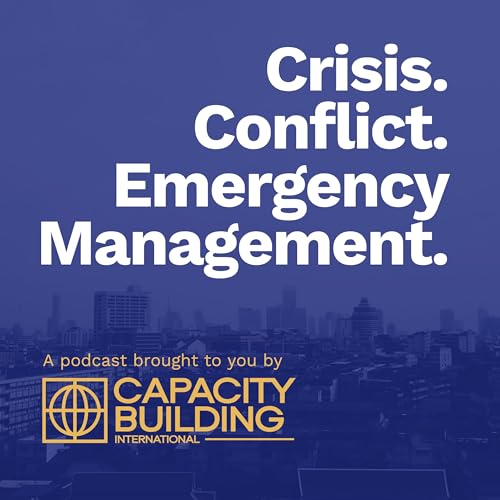In this episode of the Crisis Lab Podcast, host Kyle King sits down with emergency preparedness leader Toni Hauser to examine how the future of emergency management is being shaped by shifting influence, community leadership, and professional development. With debates underway about decentralizing FEMA, the discussion highlights why local voices matter and how change in the field often starts from the ground up.
Drawing from her role as co-vice chair of the IAEM 2025 Conference Committee and her experience in public health preparedness, Toni explains how the upcoming IAEM Annual Conference in Louisville is designed as more than a traditional event. She shares how planning adapts to constant change, why flexibility is essential, and how the conference builds resilience through networking, training, and immersive experiences.
Tune in to hear how emergency management professionals can navigate policy shifts, balance a wide range of responsibilities, and find new ways to lead in an environment where adaptability is the key to influence.
Show Highlights
[02:55] Overview of the IAEM 2025 Annual Conference in Louisville
[03:16] Debate on FEMA decentralization and shifting influence
[06:08] Planning, logistics, and adapting to change
[09:20] Gathering feedback and creating meaningful experiences
[11:16 ] Inside the IAEM Expo and networking opportunities
[14:02] Trends in conference submissions and session topics
[15:51] The role of virtual conferences and accessibility
[18:50] Speaker liaison roles and supporting presenters
[20:40] Challenges of breadth and context switching in emergency management
[24:18] Advice for first-time attendees and volunteer opportunities
[26:15] Registration details and final thoughts
Connect with Toni Hauser
- LinkedIn
Check out the IAEM 2025 Annual Conference in Louisville, November 14–20, for the latest trends, tools, and networking opportunities in emergency management: https://www.iaem.org/Events/Event-Info/sessionaltcd/AC25
 12 mins
12 mins 13 mins
13 mins 38 mins
38 mins 45 mins
45 mins 29 mins
29 mins 32 mins
32 mins 28 mins
28 mins 48 mins
48 mins
